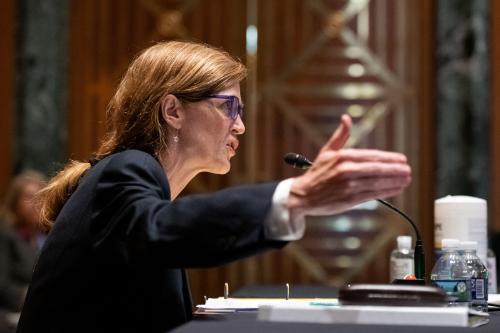The time has come for international agencies, donors, and NGOs to adapt their business cultures and operating models to a new era of international development cooperation. The converging transformational forces of the COVID-19 pandemic and the movement to “decolonize development” have created new options for development partnerships to move away from the traditional use of expatriates in management and technical roles.
The first transformational force was the COVID-19 pandemic. By the middle of March 2020, international travel had shut down and organizations were scrambling to shift to remote work. While the capacity for virtual collaboration and remote work via video conferencing had been available for at least 10 years and there was some movement in this direction, the forced shift to a remote posture shattered cultural and perceived operational barriers to working remotely overnight. By May 2020, surprisingly few programs that had relied on external oversight and on-the-ground technical assistance had closed, and development organizations of all types (donors, multilateral development banks, NGOs) were expressing pride in how quickly they had adapted to collaborating and providing management and technical services virtually.
The converging transformational forces of the COVID-19 pandemic and the movement to “decolonize development” have created new options for development partnerships to move away from the traditional use of expatriates in management and technical roles.
The second transformational force that emerged in 2020 was the rise of a powerful movement around the need to “decolonize development.” While the decolonization critique is not new and echoes the 1970s outcry against “neo-colonialism,” the current manifestation has fired the passions of a new generation of development professionals caught up in the racial and social reckonings shaking the U.S. and Western Europe. In the context of international development, this translates into demands to address the power imbalances between donor nation and developing country organizations and professionals. In practical terms, it means greater transparency and local participation in how development assistance is programmed, greater local control over spending decisions, more use of local institutions and expertise, and achieving pay equity among international and national employees.
These two convergent forces have fundamentally changed the operating environment for international development organizations and cleared the path for more sustainable and cost-effective approaches to collaboration between international and local organizations, including the home office and country operations of large international organizations.
A new model for development cooperation
New approaches to project oversight and technical assistance are already embedding themselves in development organizations’ operations, but it would be useful for the development community to articulate these emerging practices as a preferred operating model guided by two simple principles:
First, whenever possible resident management and technical staff should be hired locally. The advantages here are well known: Local professionals possess the language and cultural skills and community networks essential to effective development work. Moreover, with the notable exception of most conflict-affected states, the excuse that local professionals are unavailable is no longer valid. A common and legitimate critique of international organizations is that the higher salaries and benefits they offer to expatriates are inherently inequitable, reinforce old colonial power imbalances, and can distort national labor markets. This first principle resolves these problems by eliminating differential treatment and employing all resident staff on a single set of terms and conditions of service that conform to the local labor market.
The second principle is that when external management and technical expertise are required, they should be provided virtually to the greatest extent possible. This recognizes that international collaboration is critical to addressing today’s development challenges, that complex endeavors frequently require highly specialized experience and skills, and that there is value in being part of larger international professional networks and initiatives.
Here it is worth digressing to address a weakness in the current decolonization narrative: the implication that donors need only provide the financing and leave recipient countries to handle the rest. This ignores the value of international collaboration in promoting innovation and technology transfer and in building capacity. All countries—rich and poor—are better off when they have economic, scientific, social, and institutional linkages to their neighbors and the larger international community. Going it alone is neither politically feasible nor practically desirable.
That said, the old argument that international organizations require expatriate on-the-ground presence to achieve results no longer holds water, thanks to the experience of working virtually over the last two years. However, embracing new practices does require changing organizational culture, as the allure of international travel and in-person collaboration are major motivators for many development professionals. While the approach proposed here does not eliminate all travel—certainly there is value in some in-person interaction (for example, to establish relationships, understand context, and conduct some types of research), the amount of international travel will greatly diminish. On the plus side, this will help international organizations reduce their carbon footprint, but as the new model takes hold, expect many U.S. and European development professionals to retire or change careers and many developing country counterparts to lament the reduction in opportunities to travel abroad.
So, what does this new model look like in practice?
It’s simple. All in-country positions are treated as local national positions with compensation and conditions of service geared to the local labor market. This doesn’t prevent an expatriate from competing for a position, but it removes the financial incentives to use expatriates.
Concurrently, short-term expatriate assignments, with rare exceptions, are virtual. This is far more economical, more environmentally friendly, and tilts power relations in favor of finding local employees while avoiding distortions to local labor markets.
Forty-five years ago, Ross Coggins’ satirical poem, “The Development Set,” summed up the contradictions and weaknesses inherent in the classic international development model. In 2020, the forced shift to remote work and a renewed and urgent concern about inequalities embedded in the development community’s traditional operating arrangements have created the conditions to replace “development tourism” with a new approach to development cooperation. Now, it is incumbent upon donors, multilateral institutions, and NGOs to take action.






Commentary
The end of development tourism: A new model for development cooperation
November 22, 2021